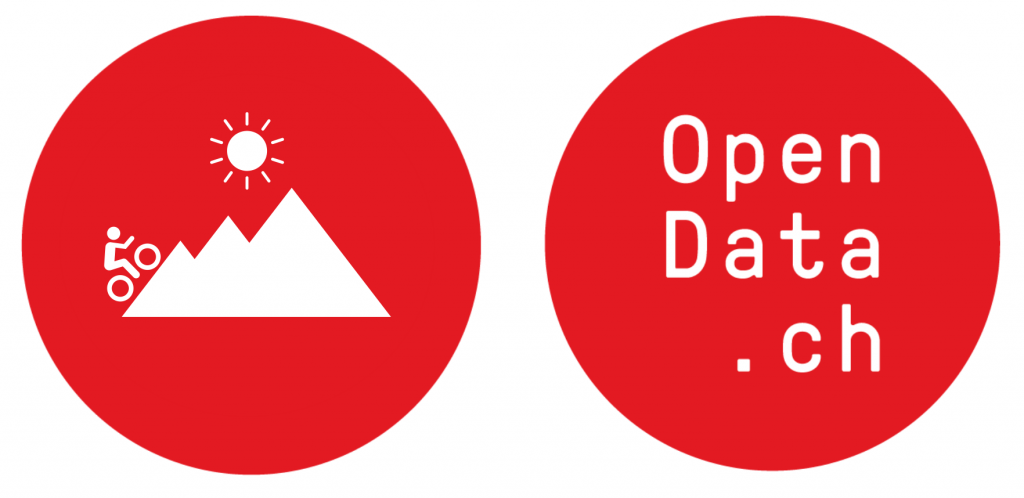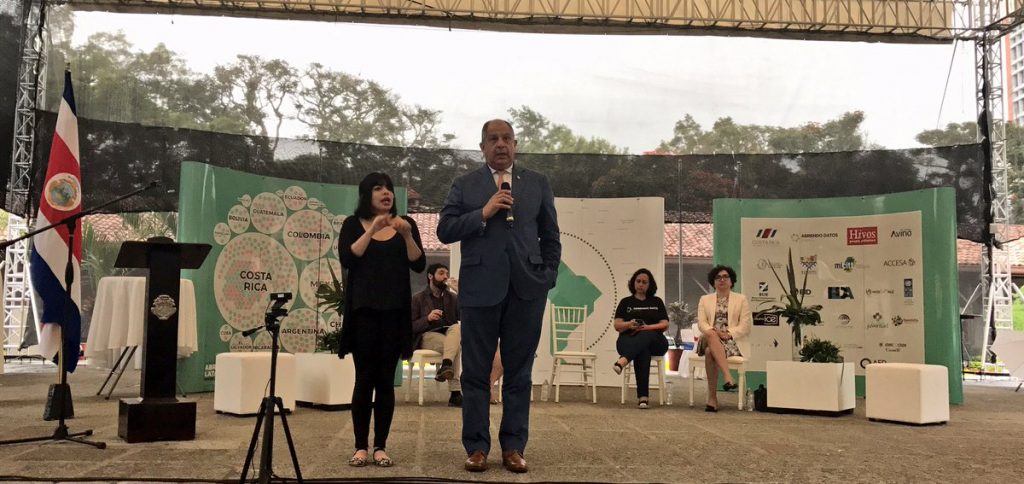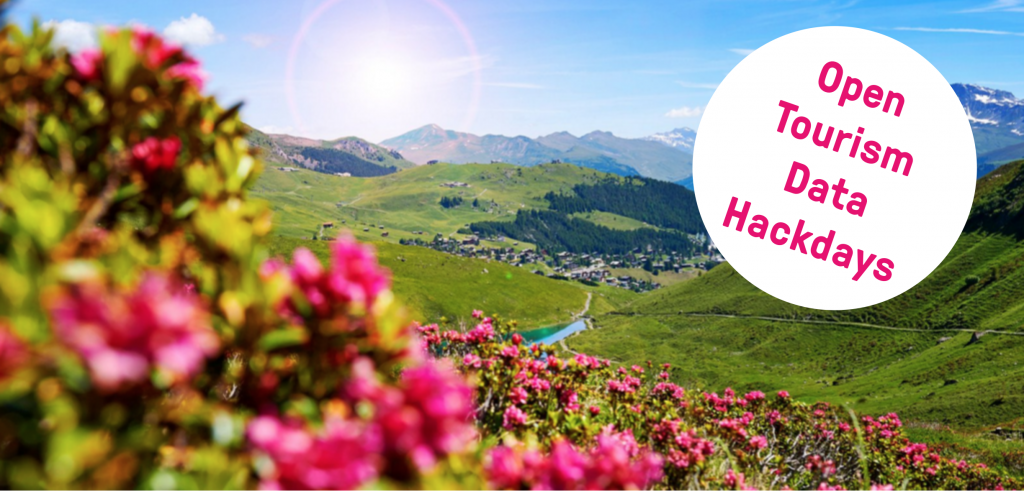Mapathon #OpenStreetMap an den Tourismus Hackdays!

Im Rahmen der Tourismus Hackdays vom 27. – 28. Oktober 2017 habt ihr am Samstag die einmalige Gelegenheit euch auf die Spuren von Carl Friedrich Gauss und Alexander Humboldt zu machen und Arosa zu vermessen: Gemeinsam mit Open Street Map Experten/innen könnt Ihr die Karten von Arosa erweitern und alle Infos, die für Touristen/innen interessant sind, erfassen – so beispielsweise Aussichtsorte, Bänklis zum Ausruhen, öffentliche Feuerstellen oder Toiletten.
Das detaillierte Programm des OpenStreetMap Mapathons vom Samstag, 28. Oktober 2017, steht euch hier zur Verfügung:
Get ready for the Open Tourism Data Hackday
 On the 27. – 28. October 2017 we are hosting a hackathon in Arosa on the topic of innovation in and the future of tourism. Please visit http://tourism.opendata.ch for more info.
On the 27. – 28. October 2017 we are hosting a hackathon in Arosa on the topic of innovation in and the future of tourism. Please visit http://tourism.opendata.ch for more info.
To get prepared, take a look through presentations from the last Opendata.ch conference, where the event was announced, notably the keynote by Pascal Jenny (@TDkonge) – Wie der Schweizer Bergtourismus von Open Data profitieren kann (PDF), and the Open Tourism & Transport Datatrack:
– Christian Trachsel: Herausforderungen, Ziele & Zukunft mit Open Data bei SBB
– Christian Helbling: Transport API
– Stefan Keller: Nutzung von OpenStreetMap für Tourismus und Transport1
– Andreas Liebrich: OpenData im Tourismus: (Un-)genutztes Potenzial bis à go go?
A couple of projects can already be found on the old make.opendata.ch wiki, and there is at least one interesting initiative to check out in the Open Knowledge and School of Data network: the Belgian Open Tourism working group.
We are working on preparing platforms and resources, and a workshop along the lines of what we did in January has been suggested. Please give me a shout if you’re interested in supporting or participating.
Condatos 2017 and Abrelatam: Latin American Open Data Conference
Until one month ago, I had the pleasure to work as a community manager for Opendata.ch, co-coordinating the “Business Innovation food.opendata” and supporting different food-related open data projects that came out of the Open Food Hackdays in February 2017. In the beginning of August, I changed the scenery. For the coming year, I’m going to be studying in Costa Rica in Central America, finishing my Master’s degree in Strategy and International Management. Living in this new context and in a new culture, I was very curious how the open data world would look like in this part of the world.
Two weeks ago, from August 23 to 25, 2017, I now had the chance to take part in the regional open data conference of Latin America, taking place in San José, Costa Rica. With this blog post, I would like to share with you the impressions I had and what the open data movement in Latin America is all about. In the following lines I will describe the various conversations with people from Mexico, Guatemala, Costa Rica, Colombia, Peru, Brazil, Uruguay, and all the way down until Argentina.
Open Data in Latin America – A civil society movement
 Latin America is a region that faces a lot of issues – ranging from corrupt governments to lack in infrastructure and services to large inequalities in income and wealth.
Latin America is a region that faces a lot of issues – ranging from corrupt governments to lack in infrastructure and services to large inequalities in income and wealth.
In times of digitalization, these inequalities become even bigger as the lack in infrastructure and resources leads to an inaccessibility to new technologies and education for many people in the region – widening ever more the gap between the more privileged and the poor.
In order to close this gap, various civil society organizations started to collect their own data with the help of citizens in order to visualize and get information about the problems existing in the different countries. Further, many journalists are switching to data journalism in order to discover irregularities within the processes of sometimes corrupt governments. Open Data also helps governments themselves to keep transparency and figure – avoiding the huge economic costs that corruption entails.
The Abrelatam and Condatos 2017 conferences were a gathering of around 300 civil society and data journalism practitioners from all over Latin America – including countries like Mexico, Guatemala, Costa Rica, Panama, Colombia, Peru, Brazil, Uruguay, Chile and Argentina – together forming a community to jointly address these issues.
Creativity is key
 It was very impressive to see, with what professionality and creativity this conference was presented. The open data community in Latin America did a very good job in
It was very impressive to see, with what professionality and creativity this conference was presented. The open data community in Latin America did a very good job in
However, not only the visual design of the conference was very appealing. The conference itself consisted of a very interesting mix between collaborative brainstorming in form of an unconference – Abrelatam – the day before the actual two days of conference, where participants could share their thoughts and concerns. The following days were between talks and interactive workshops, allowing people to simultaneously gain more knowledge and apply this directly in practice.
The issues talked about, the professional and creative presentation – especially in comparison to other events in Latin America – and a very motivated and inspired crowd made this gathering a very progressive and creative space where innovation actually could happen.
Open Data is a government priority
 Who thinks that open data in Latin America is a minor movement that takes place at the periphery of society by a few geeks is very wrong.
Who thinks that open data in Latin America is a minor movement that takes place at the periphery of society by a few geeks is very wrong.
Facing a lot of challenges innovative governments in Latin America have recognized that in order to solve the social issues they need the help of the civil society and it’s citizens. That governments have recognized the potential that lies in open data is maybe best materialized in the presence of the President of the Republic Costa Rica who was present in the closing ceremony of the conference where he hold a keynote speech.
In his words, there is a strong necessity for institutions to change and this can only take place in an interplay between governments, civil society and academia. Costa Rica actually started an initiative called “Gobierno Abierto” (Engl.: “Open Government”).
Also in the panel about fighting corruption with open data it become clear that many of the Latin American governments are honestly attempting to make administration processes more efficient and transparent through open data. The way to go however still remains very large.
Where is Open Data in Latin America going?
 Finally, it is to say that open data is in a very interesting stage in Latin America. This in the sense that the collection and publication of data through citizens actually can contribute to detect and visualize and create new solutions for problems that exist through a lack of governmental and institutional voids.
Finally, it is to say that open data is in a very interesting stage in Latin America. This in the sense that the collection and publication of data through citizens actually can contribute to detect and visualize and create new solutions for problems that exist through a lack of governmental and institutional voids.
Unfortunately, the role of businesses in this process hasn’t been discussed at large during this conference. Even though there were sessions on how to scale impact of open data initiatives and how to create business models, these were not merely targeted towards big corporations in the region. However, there seems to be a big potential for businesses especially in countries where there often exist a lack of basic government services.
Finally, it became very clear among all the participants that there is a need for a change in mindset within Latin America’s society in order to push the agenda of the open data movement further. The fact that governments are starting to take on the efforts of the open data movement seems promising, but it also becomes clear that the members of the conference are far from being a representative sample of the Latin American society. In this sense, open data has to be pushed even further and be made more inclusive for the region’s citizens.
All in all, I spent some very interesting days in San José where I met many very engaged and highly talented people pushing the open data agenda for Latin America further. As described, I personally think that this community consists over some very valuable skills in this region of the world to have a big influence and become a force for positive change – I will be very glad to follow this further.
By Florian Wieser, September 5, 2017, from San José, Costa Rica.
Jetzt anmelden: Open Tourism Data Hackdays
Abenteuer, Reisen, Ferien, Urlaub – Wörter, die unsere Herzen höher schlagen lassen. Aus diesem Grund freuen wir uns besonders, vom 27. – 28. Oktober 2017 in Arosa die MAKE Open Tourism Data Hackdays 2017 durchführen zu können.
Bekanntlich verfolgen wir mit offenen Daten 3 übergeordnete Ziele: Transparenz, Innovation und Effizienz. Während wir uns mit den Election Hackdays im 2015 der Transparenz und mit den Energy Hackdays im 2016 der Effizienz gewidmet haben, dreht sich in diesem Herbst alles um Innovation – genauer gesagt um Innovation im Bereich Tourismus.
Am 27. und 28. Oktober 2017 erwarten wir euch – Entwickler/innen, Designer/innen, Tourismusbegeisterte und Interessierte – im Sport- und Kongresszentrum in Arosa und entwickeln alle gemeinsam innovative Ideen für das Tourismusbüro und die Tourismusdestination der Zukunft.
Anmelden könnt ihr euch auf Eventbrite: opentourismdata.eventbrite.ch
Und weitere Infos zur Veranstaltung findet ihr auf tourism.opendata.ch
Wikidata Workshop on September 14 in Zurich!

Are you interested in Wikidata? On September 14, Lea Lacroix, Cristina Sarasua and Rama will run a Wikidata workshop the day before HackZurich starts, at the University of Zurich. They’re going to explain what Wikidata is, and have hands-on sessions to learn how to code for and with Wikidata. Register now or get more information about the event.

Also featuring a workshop by our School of Data in the use of Wikidata APIs. See tutorial sources on GitHub.






